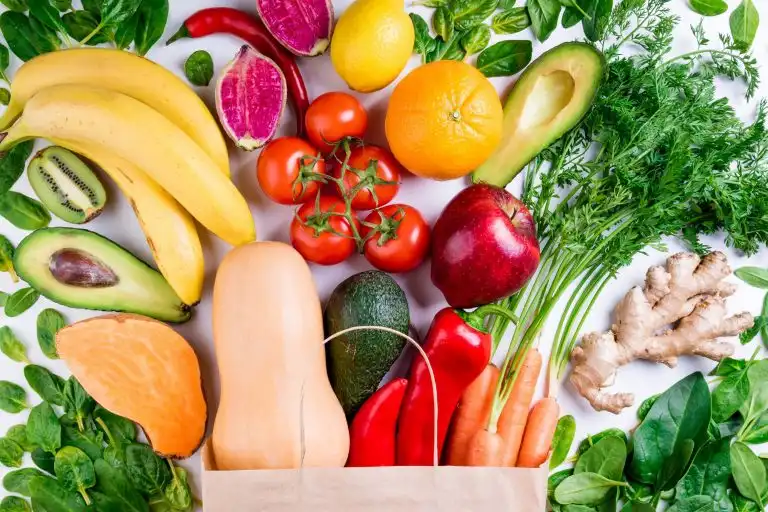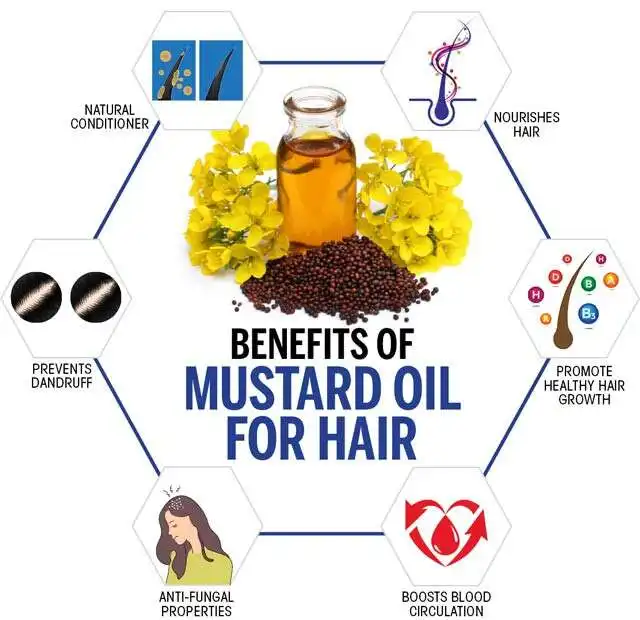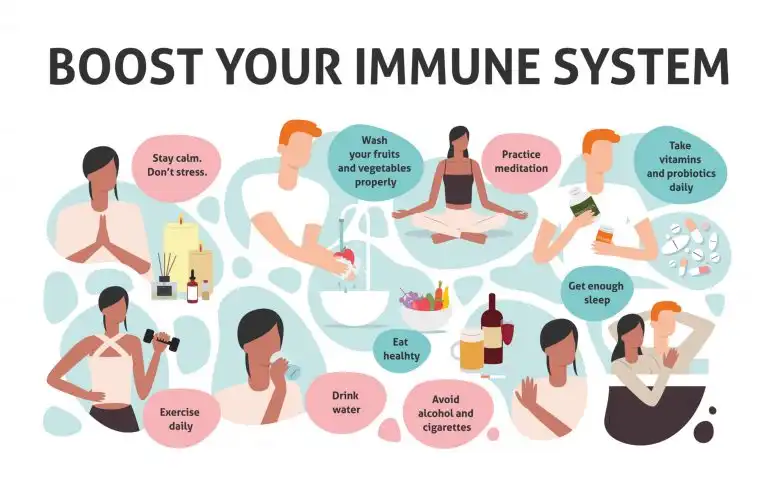How food can change your moods

Eating certain foods really help keep bad moods at bay. The scientific community still has much to learn about how our diet influences our moods. Dietary changes bring about changes in our brain structure, chemistry, and physiology, which lead to changes in behaviour and our mood. So here are some theories based on research on different food types that affect out mood which we can include in our diet. Fatty fish like salmon are rich in omega-3 fatty acids, may lower your risk of depression. A good source of this nutrient is ground flaxseed. Other sources include canola oil, purslane (an herb), cauliflower, red kidney beans, and beans. Certain nuts and seeds are high in tryptophan, zinc, and selenium, which may support brain function and can reduce bad mood swings. 3) Dark chocolate is rich in compounds that may increase feel-good chemicals in your brain enhancing your mood. 4) Fruits like Bananas are a great source of natural sugar, vitamin B6, and prebiotic fiber, which work together to keep your blood sugar levels and acts as mood stabliser. Berries are rich in disease-fighting anthocyanins, which may lower your risk of depression too. 5) Oats provide fibre that can stabilize your blood sugar levels and boost your mood. They’re also high in iron, which may improve mood symptoms in those with iron deficiency anaemia. 6) Coffee provides numerous compounds, including caffeine and chlorogenic acid, that may boost your mood. 7) Beans and lentils are rich sources of mood-boosting nutrients, particularly B vitamins It is quiet common that when you feel down you may crave calorie-rich, high sugar foods like ice cream or cookies to try to lift your spirits. Remember that a sugar rush in the long term may have negative consequences as well. Instead aim for wholesome foods that have been shown to not only boost your mood but also your overall health.
Wockhardt Hospitals performs a life saving major cardiac surgery in current Covid crisis

In these challenging times when hospitals are focused in treating covid cases, other specialties are geared up in saving lives of patients with other medical illnesses at all costs. Against all odds ,with safety precautions and amidst a pandemic the medical fraternity using their clinical acumen and efficient team work are treating all types of medical and surgical cases. We would like to share some successful cases to highlight our care and services for the people. A 30 year old patient was diagnosed with acute aortic dissection. He developed chest pain and became unconscious . During the lockdown it was difficult to get medical treatment from any hospital. So patient was referred by a doctor from Boisar to Wockhardt Hospitals for further management. The patient was in a very critical condition when he arrived. He was promptly attended to by the emergency staff and was immediately shifted on ventilator under all safety precautions in such unforeseen circumstances. It was very difficult to arrange all the disposables and expertise to save this patients life but the hospital ensured that all the necessary requirements were allocated for managing the patient. Under the expertise of Dr. Upendra Bhalerao Consultant Cardiovascular, Thoracic Surgeon and Dr. Chetan Bhambure, Consultant Cardiologist a life saving procedure was carried out. The patient underwent A COMPLEX supra major aortic surgery and a large part of his torn aorta and aortic valve was replaced. The surgery was successful and got a second chance to live a quality life. Acute aortic dissection has a mortality rate of 60 -70 % at the best centres the world. At Wockhardt Hospital,Mira road the patient life was saved due to excellent team work by Cardiac surgeon, Cardiologist, Anaesthetist & Intensivist. Dr. Bhalerao emphasizes that “during a pandemic, emergency cardiac surgery in India will always remain a challenge. Emergency surgeries needs to be done whatever is the effect of pandemic on the population & healthcare percusses. Saving life is more important than considering the infectious status of these patients.” We appreciate and recognize the efforts of medical team for all the efforts for treating all our patients at the frontier. They are truly are our superheroes in such critical times.
Vitamin D Vital for Immunity

Vitamin D is a pro-hormone that is synthesized in the body when exposed to sunlight, and hence, is called the sunshine vitamin. It is a group of vitamins, including calciferol (Vitamin D2) and cholecalciferol (Vitamin D3), found mainly in liver and fish oils. Everyone wants to know whether they are Vitamin D deficient right now, as staying indoors seems to be a necessity in this healthcare crisis. A miracle vitamin that boosts immunity, clears skin, aids sleep, curbs anxiety. Perhaps a worry about getting the correct dose of sun exposure required for bone health and mood is vital The Benefits Include: Vitamin D deficiency is linked to the deficiency of Calcium. This is mainly due to the fact that the body needs the vitamin to absorb Calcium. Without enough of it, one can’t form enough of the hormone calcitriol.. The 25(OH)D or the 25-hydroxyvitamin D is the most efficient way to monitor the Vitamin D levels. The amount of 25-hydroxyvitamin D in one’s blood is the best indicator of the levels of the vitamin in the body. 30-100 ng/ml(nanograms per millilitre) is the recommended amount in a healthy human body. Symptoms Include: Vitamin D deficiency is seen more in dark-skinned people (pigment blocks sunlight); obese people (the vitamin gets sequestered in fat cells); type-2 diabetics (vitamin D improves the body’s sensitivity to insulin); the elderly (they tend to avoid the sun and eat more frugally); city dwellers (they see less sunlight). Scientific research of vitamin D protects against viruses, especially respiratory ones, including the common cold. Vitamin D increases the production of antiviral proteins and decreases cytokines, the immune molecules that can cause a storm which reduces infection and is important in immunity. But when the immune system gets hyperactive, the cytokines are released in a huge amount leading to hyperinflammation. This is called a cytokine storm which causes cell death, eventually leading to organ damage and even death in some critical patients. It has been reported that in the case of COVID-19 patients, the cytokine storm is mostly seen in the lungs, which leads to respiratory failure. Vitamin D Sources: The following methods can help increase the vitamin content in the body and thus overcome a deficiency of the nutrient: In case of deficiency please consult your dietician or orthopaedic doctor for further advise.
A Neurologist’s Guide On How To Deal With Migraines Without Medicines

It ain’t an ordinary headache. It’s the kind that refuses to leave and sure makes a weekly visit. We are talking about the unwelcome guest–migraine, the worst of all kinds. No amount of balm, vapor or painkillers is ever enough. Your nerves will stop throbbing when they have to, no medicine helps. However, making lifestyle and dietary adjustments can help one in reducing the frequency and intensity of the pain. We got in touch with Dr Prashant Makhija, Consultant Neurologist, at Wockhardt Hospitals Mumbai Central to guide you on everything you need to know about migraines. Food that triggers migraines If you’re suffering from migraines you already know that skipping meals and fasting makes it even worse. Dr Makhija explains, “Aged cheeses, salty and processed foods can trigger a migraine. Likewise, food additives such as sweetener aspartame and even the preservative monosodium glutamate (MSG), that is present in many foods also trigger it.” To your surprise, red wine and dark chocolate also do. So keep your intake in check. Environmental triggers Yes, direct sunlight and sleep deprivation do trigger chronic headaches. But did you know that change in weather (humidity in particular,) change in altitude or barometric pressure, flickering lights, loud noise, strong smell, and stress can cause migraines? These are factors beyond your control, but play a major role in inducing pain. Foods that help to battle migraine “Foods rich in Vitamin B-2(Riboflavin) and Magnesium are particularly helpful. Eating fruits, vegetables and legumes can be beneficial. Also, eat fewer fatty foods”, suggests Dr Makhija. Here’s what you need to include in your diet to avoid frequent migraine attacks. Foods to avoid: Dr Makhija said, “It’s hard but try to avoid chocolates. Other than that, preservatives, additives, cheese, red wine, smoking, alcohol, citrus, and processed foods are better to avoid.” How to cure migraine if one doesn’t have medicine handy You may not like the taste of ginger, but it works wonders. Dr Makhija explains, “It can help you manage nausea, vomiting, and migraine. Drink ginger tea or include ginger in the diet. Coriander seeds added to the hot water can also be used for inhalation. It relieves pain. Or one can also have coriander tea too.” And lastly, adopt a healthy lifestyle. Follow a regular schedule, eat, sleep and exercise on time. Adequate sleep for 7-8 hours will help you get rid of the headache. Avoid stress, and opt for relaxation techniques such as yoga and meditation. Avoid triggers, if weather conditions are unfavourable, avoid going out. And more importantly, avoid fasting and skipping meals. Source: https://www.idiva.com/health-wellness/well-being/how-to-cure-chronic-migraines/18008565
Warriors on the frontline

After her shift ends at 6 pm at KJ Somaiya Hospital in Sion, Mumbai, Mini enters her two-room home on the fifth floor of a seven-storey building in Kharghar, on the outskirts of Mumbai, some 30 km from the hospital, with tentative and cautious steps. As she ensures that she doesn’t touch anything, her 15-year-old daughter watches from a distance; her mother has told her that they cannot hug each other for some days. The 48-year-old nursing superintendent has set new rules in the house; she lives alone in a separate room and her routine has also changed. She doesn’t touch anything once she walks through the building gate; her husband is there to help, pressing the lift button to take her home. Mini straightaway heads for a shower and sanitises everything she carries from outside —her uniform, cap and scarf. “Initially it was difficult for us to cope with this new lifestyle, but we don’t have any other option. Not hugging my daughter after returning from work was hard to digest,” shrugs Mini, whose responsibilities at work include delegating nurses to Covid-19 patients and making sure that the 90 nurses in her team are taking all the precautions as suggested. KJ Somaiya is one of the many hospitals doubling up as isolation and quarantine centres for Covid-19 patients. At the time of writing, the hospital had over 20 patients who tested positive; one died because of coronavirus. Mini and her team have been at it for 15 days now. “Wearing personal protective equipment (PPE) and a mask for long hours is not easy. Plus it is getting hotter by the day. My team comes crying to me with dribbles of sweat trickling down their faces. I see the exhaustion and pain in their eyes. But we don’t have an option. I keep giving them rotational shifts so that they’re not overloaded with work.” Mini has her own moments of despair, something that she has learnt to hide when she performs her duties. “The entire team approaches me when they face any trouble; if I start crying in front of them, where will they go? On one particular day I was so stressed that I couldn’t understand what to do… I called up my mom and cried my heart out,” she says. That happened during the initial days of the pandemic when Covid-19 patients were new to the hospital staff. “I have overcome all of it now and am getting stronger each day,” she adds. As the number of deaths, new cases and those testing positive for Covid-19 burgeon by the day in Mumbai, hospitals are buckling under the virus assault. In mid-April, Mumbai Mirror reported that at least 15 hospitals, including Saifee, Wockhardt and Bhatia in Mumbai, had shut down after health staff contracted the virus. Dr Jeenam Shah, a consultant pulmonologist who would practice at these three city hospitals, describes the tribulations of those at the frontline. “PPE is in shortage, so we have to use it judiciously. Working with the suit on and ensuring that you don’t touch your face is a task in itself,” he says. What’s more, health workers point out that it becomes uncomfortable to move one’s face in the head mask that they have to wear. Those wearing spectacles have a bigger challenge when the glasses get foggy. “And, after wearing PPE, one cannot go to the washroom or eat; if you have to use the washroom, you have to discard everything,” adds Shah. Source: https://www.forbesindia.com/article/coronavirus/warriors-on-the-frontline/58929/1
Take these 5 steps to take care of your gut health this summer

In the scorching heat, we often cling to colas or spicy street food that might seem delicious but aren’t gut-friendly.Let’s learn how to keep a healthy gut during summer. As we’re all experiencing the onset of summer and our diet slowly begins to adapt to the season, the threat of gastrointestinal problems looms. While the relaxed cooling diet is a pleasant change but we must take care of our gut health. “Every year, we see a rise in cases of diarrhea, vomiting, food poisoning, dehydration, typhoid fever and jaundice during the summers, due to the above-mentioned reasons. A healthy gut is often a mirror of overall health, and hence it is necessary to keep your gut healthy during this summer,” says Dr Mrudul Dharod, Gastroenterologist, Wockhardt Hospitals, Mira Road Here are five steps you can take to have a summer-healthy gut: 1. Ensure that you keep yourself hydrated While the summer heat is right around the corner, it becomes significant to keep our hydration levels high. Dehydration slowly leads to the threat of a weakened immune system. So it’s time to drink at least 8 glasses of water a day, including homemade lemonade and buttermilk. Although you must avoid caffeinated drinks like coffee and aerated drinks since your body can become dependent on these in the longer run. 2. It’s time to strengthen the immunity system You can start boosting your immunity by preparing magic decoctions like herbal tea or a kadha made from tulsi, cinnamon, black pepper, dry ginger and raisin – once or twice a day. Adding jaggery or fresh lemon juice to this decoction can further boost its benefits. Let’s also try the good old delicious ‘golden milk’ (half teaspoon of turmeric powder with 150 ml milk). This age-old traditional drink is filled with many anti-oxidants, anti-inflammatory and anti-cancer properties. 3. Your gut health craves probiotics The live bacteria/yeasts that can be consumed in food or supplements are probiotics. They have numerous beneficial effects on the body, most prominently serving our digestive health. We can feed our gut with healthy bacteria by increasing the consumption of naturally occurring probiotics rich food. You can try foods like curd, yoghurt, and fermented foods like idli, or supplements like Yakult. Curd or yogurt is surprisingly suitable even for lactose intolerant individuals. 4. Increase your consumption of fibre-rich foods Fibre is truly the recipe for a healthy gut. You must increase the intake of high fibre foods such as raw vegetables (adequately washed), salads, bran cereals, whole grain bread and fresh fruits such as figs, bananas and apples. Start adding greens like spinach/lettuce and lemon juice to salads. When you want to up your hydration game while increasing fibre-rich foods, you must eat yummy cucumbers, citrusy oranges and juicy watermelons this summer. 5. Avoid binging on junk food and/or spicy foods This must one must be a hard task but you must avoid or decrease intake of foods with high-fat content. Spicy foods when eaten in overdrive can also throw your gut health for a toss. Source: https://www.healthshots.com/healthy-eating/nutrition/take-these-5-steps-to-take-care-of-your-gut-health-this-summer/
Benefits Of Mustard Oil For Hair

Growing up in Indian household, we need no introduction to mustard oil aka Sarson ka tel. From making our aam ka achaar all-the-more delicious to enhancing the flavour of our mutton curry and fish fry, mustard oil has given us several memories. Remember those childhood days, when every Sunday during winters, as you watched your favourite television shows, your mother would make you sit and massage your head with oodles of oil. From boosting immunity to protecting your body from cold and cough, and to strengthening hair roots and nourishing skin, mustard oil is loaded with several beneficial properties. As we grow up, not many of us follow the same Sunday hair care routine our mothers encouraged. However, if you feel that the city life and a busy schedule, pollution and lack of appropriate care have made your lovely tresses limp and lifeless, Femina Wellness Expert would recommend using mustard oil. Need some more reasons to switch to this home remedy? Here you can read more about the benefits of mustard oil for hair. Scroll below: Even as mustard oil is used in several food items, some people get put off by its thick consistency and pungent smell. However, if you move away from these drawbacks, mustard oil is great for your lustrous locks. “These properties of mustard oil make it a very popular and in-demand ingredient in hair care. You can safely use mustard oil on your hair to deep condition your hair, fight dandruff, help in hair growth and prevent premature greying,” says Dr Rinky Kapoor, Consultant Dermatologist, Cosmetic Dermatologist & Dermato-Surgeon, The Esthetic Clinics. Benefits Of Mustard Oil For Hair Facing hair issues? Then mustard oil is the just the elixir that you have been waiting for. It has numerous benefits for hair and scalp health. “Mustard oil has the right balance of omega 3 acids and omega 6 fatty acids and is enriched with Vitamin E and rich in antioxidants which increased its benefits to multifold. Mustard oil is used as a sunscreen, a cure for chapped lips, a natural stimulant for the body, whitening teeth, fighting cold and flu, helping ease muscle tension, removing tan and dark spots and lightening the skin tone etc,” Dr Rinky Kapoor explains. 1. Natural Conditioner Enriched with alpha fatty acids, which helps in keeping the moisture of your hair intact, and keeps hair fresh and bouncy, mustard oil is a natural conditioner that tends your hair soft, smooth, silky and voluminous. 2. Nourishes Hair Several people, in today’s time, face the issues of hair fall and hair thinning, which usually happens when our hair follicles are under-nourished and are not damaged. However, if you massage your hair follicles regularly with mustard oil, you can gain back your hair’s strength and shine. 3. Full Of Minerals, Vitamins And Antioxidants Do you know mustard oil is a great source of iron, magnesium, calcium and vitamins like A, D, E and K, along with antioxidants? This pungent hair oil is also loaded with the goodness of zinc, beta-carotene and selenium, which encourage hair growth and helps in keeping untimely grey hair at bay.>/p> 4. Boosts Blood Circulation Several hair experts claim that the main reason behind hair fall and hair thinning is under-nourished roots. If you want your limp tresses to gain life again, try using mustard oil for hair massage. “It is a natural stimulant. When massaged onto scalp, it stimulates the circulatory system, improves blood circulation,” says Amreen Shaikh, Head dietician and nutritionist, Wockhardt Hospital Mumbai Central. The best way to implement this is by heating the oil with some cloves and massaging your hair gently using fingers. Do this twice a week for better results. 5. Promotes Hair Growth Regular hair massage using mustard oil will render your hair soft, shiny and healthy. Since it is rich in antioxidants and several other nutrients, mustard oil stimulates faster hair growth 6. Anti-Fungal Properties Mustard oil has high erucic acid content, and it also has ALA content, which helps in cleansing your scalp and eradicating bacteria and fungus that block hair follicles and lead to building upon the scalp. 7. Prevents Dandruff Since mustard oil is rich in antioxidants and anti-bacterial in nature, regular use of it can help in keeping the scalp clean and free from dandruff. Expert Tips On Mustard Oil Uses Mustard oil is completely safe to use, however you must do a light patch test at least 24 hours before you use the oil on your scalp. Some commons side effects of mustard oil are allergic reactions like rashes on the skin in the form of lesions and blisters; it can also cause eye irritation and can cause clogged pores if not washed properly. You can use mustard oil as a standalone ingredient in hair care by simply massaging it on the scalp to improve the circulation. Massage well and cover your hair with a shower cap. Wash normally after 30 minutes and use a mild shampoo and conditioner. -Do a patch test before using it -Do not use it daily -Heat it slightly for better result -Can be made into hair masks with different ingredients
How Staying Home Affects Your Physical Health

A month back, if someone told us that the bustling streets of the world would be deserted, world economies would plummet, and we all would lock ourselves inside our homes for safety, we would have laughed, and laughed hard on that! As necessary as social distancing and staying home have become for us, being cooped up inside has its side effects, especially on our physical health. From jagged appetite to lower metabolism, there can be some ill effects on your body due to lack of physical activity. Here’s what experts have to say. Read on. Watch That Pose! From sofa to bed and balcony to floor, work from home has made us squat and work from corners of our home we never imagined. As comfortable as it sounds, it is not all that good for your body. Without a steady and balanced posture, occupying spaces without back or butt support long may cause spine issues. “You can walk around your home instead of continuously sitting. Stand up and stretch. You can do Zumba, yoga or aerobics, isometric exercises and skipping at home. But, avoid going overboard. People who have any comorbidities must consult their doctor before undertaking any fitness routine,” Dr Vikrant Shah, consulting physician, intensivist and infection disease specialist, Zen Multispeciality Hospital Chembur. Watch Your Metabolism! For most of us, who follow a sedentary lifestyle, it is imperative to keep the engines rolling. As lockdown and quarantine have restricted the physical movements to just our homes, make sure to keep your bodily cycles active by doing some physical exercise. Take the stairs in the house and follow a fitness routine to keep your metabolism rate stable. “Staying inside the home for a long time can reduce metabolism. It can also cause muscle loss especially if a person is used to working out,” says Amreen Shaikh, Head dietician and nutritionist, Wockhardt Hospital Mumbai Central. Also Read: 5 Healthy Snacks To Much On During The Quarantine Watch That Weight! Reduction in physical activity causes weight gain, explains Dr Shaikh. While we stay put in the house, our appetite goes for a toss. Owing to lack of movement, and all thanks to quarantine cooking wave on social media, eating has become a favourite pastime. “Staying at home may make you gain weight if you fail to exercise at home and follow a well-balanced diet. The sedentary lifestyle and low levels of physical activity can also invite other problems such as heart issues or diabetes. Also, in the current context of COVID-19, staying home is the only key to flatten the viral curve and to avoid community spread,” says Dr Shah. Also Read: Watch: Ways To Work From Home Efficiently Watch What You Watching! As the world outside has shut down, people are finding the comfort of socialising and entertainment in their phone and laptops. However, if you keep your eyes glued to the screen for long hours, chances of getting eye infection are high. Make sure you keep the brightness of your devices low and keep a dedicated off-time to help you switch off and get your eyes the much-needed rest. Why Staying Active Physically Is Important Also Read: Here’s How I Stay Motivated To Work From Home In Midst Of A Pandemic Best Ways To Keep Fit During The Lockdown
Can you get Re-Infected with COVID-19

Patients who were diagnosed with COVID-19 and seemingly recovered have been readmitted to the hospital after testing positive for the virus again. South Korean officials announced seems to be hitting the news. The novel coronavirus that causes COVID-19, was only discovered a few months ago, scientists are still trying answer questions. The World Health Organization (WHO) is investigating the reports of patients testing positive after being released from treatment, but said it has no findings yet. The most daunting question is whether you can get re-infected or not. Experts say the body’s antibody response, triggered by the onset of a virus, means it is unlikely that patients who have been infected with virus can get re-infected so soon after contracting the virus. Instead, testing positive after recovery could just mean the tests resulted in a false negative and that the patient is still infected. A positive test after recovery could also be detecting the residual viral RNA that has remained in the body, but not in high enough amounts to cause disease. Even after the virus is dead, the nucleic acid (RNA) fragments still remain in the cells is what scientists are stating .The patients generally were not symptomatic at the time of their second positive test. Does recovering from COVID-19 make you immune is another question. With other coronavirus strains, experts say the antibodies that patients produce during infection give them immunity to the specific virus for months or even years, but researchers are still figuring out if and how that works with COVID-19. Time will tell on coronavirus strain its evolutions and body reaction towards the disease. We can only hope that a vaccine will come out soon so as to build immunity against this infection.
Boosting your immunity as precaution against COVID-19

While it is crucial to mention hygiene standards like washing your hands frequently and maintain social distancing as precaution ,marinating a good immunity is also vital in order to defend against getting the disease or act as a tool to fight it. There are also certain methods to improve your immunity which is paramount in these critical times Individuals in certain pre-existing illnesses like diabetes, hypertension, cardio vascular disease, and respiratory issues are at a higher risk of having Covid 19 complications, it also aggravates with age as the general immunity reduces as you get older. In the younger generation with no underlying illnesses, Covid 19 can result in a minor infection, provided you have a robust immunity and do not engage in activities like smoking or vaping to combat the onslaught of the virus. Here is a list of measures you can undertake to improve your immunity. Balanced Diet: A diet rich in antioxidants has been linked to a host of health-promoting, disease-fighting activities in the body Antioxidant-rich foods include: Along with a healthy diet and adequate nutrition, there are healthy activities that can re-enforce your immune health too. Exercise Moderate exercise has been shown to improve the flu-fighting power . Solo exercises include jogging, jumping rope, and a variety of at-home workouts from and yoga. Stress Reduction Moreover, chronic stress has been shown in some studies to leave us more vulnerable to infections. These are testing times, and a prolonged period of staying indoors has its implications on your mental wellbeing. Being stressed out leads to increased levels of suppressor T cells, which suppress the immune system. When this branch of the immune system is impaired, you are more susceptible to viral illnesses including respiratory conditions like colds, flu, and the novel coronavirus infection. You can reduce stress through breathing exercises, meditation, working out, talking to a therapist, and getting out into nature, along with many other ways. Sleep Getting the right amount of quality sleep can help your natural infection resistance, too. Several studies confirm the link between sleep and a healthy immune system. For most adults, that means 7 to 9 hours of uninterrupted slumber. Stay Hydrated Drink up to 8-10 glasses of water every day, to stay hydrated. Hydration will help flush out the toxins from the body and lower the chances of flu. Other alternatives include juices made of citrus fruits and coconut water, to beat the heat.














